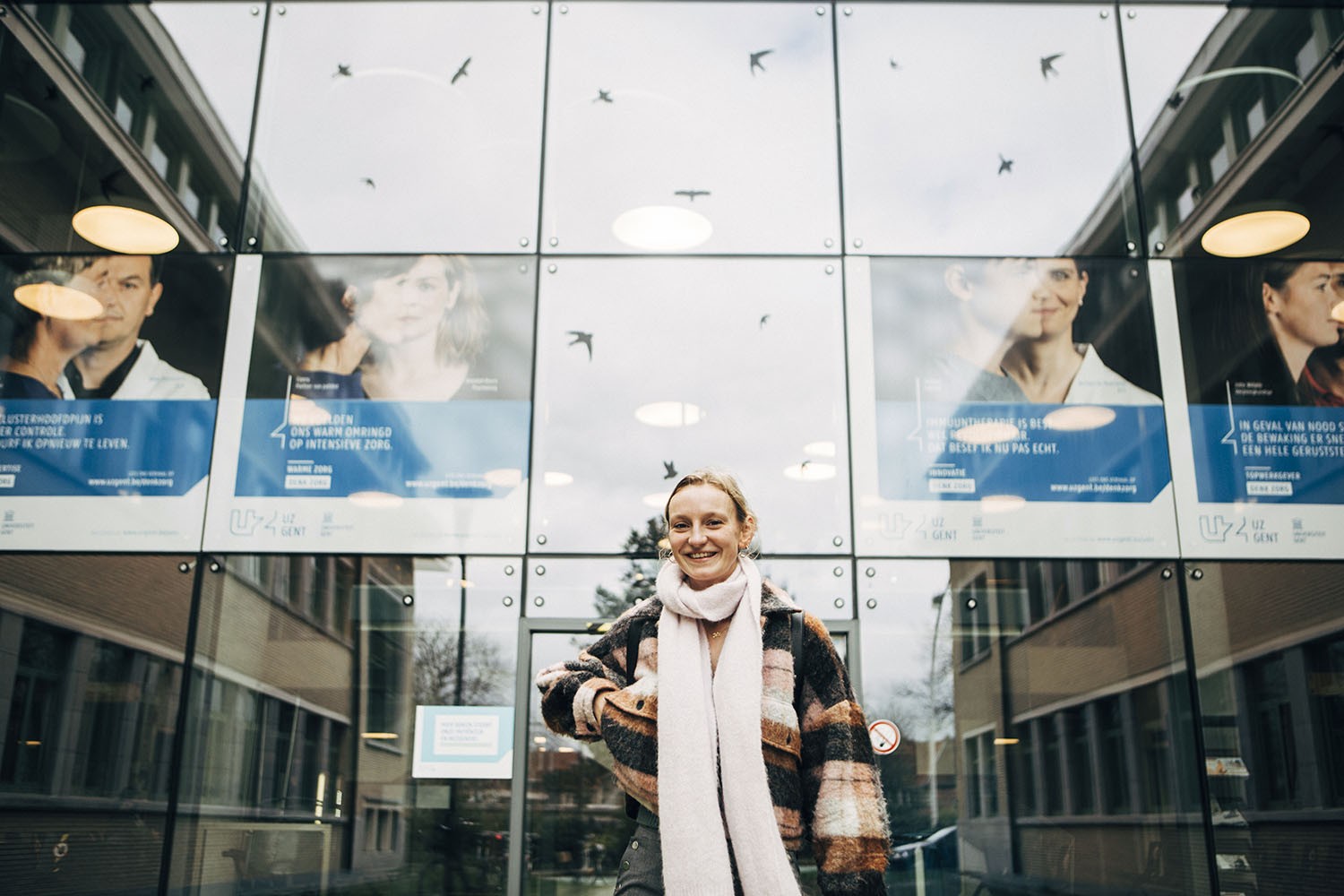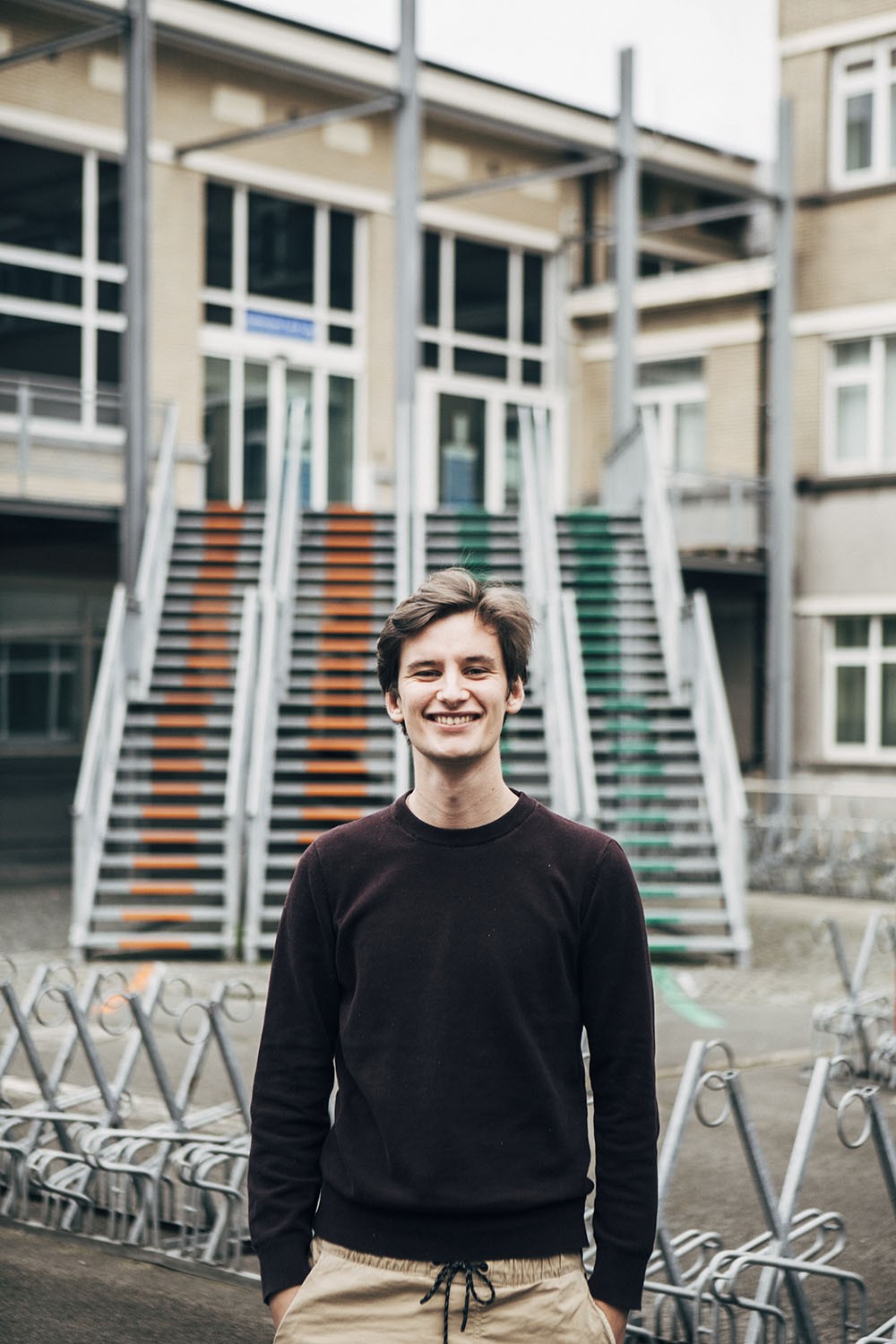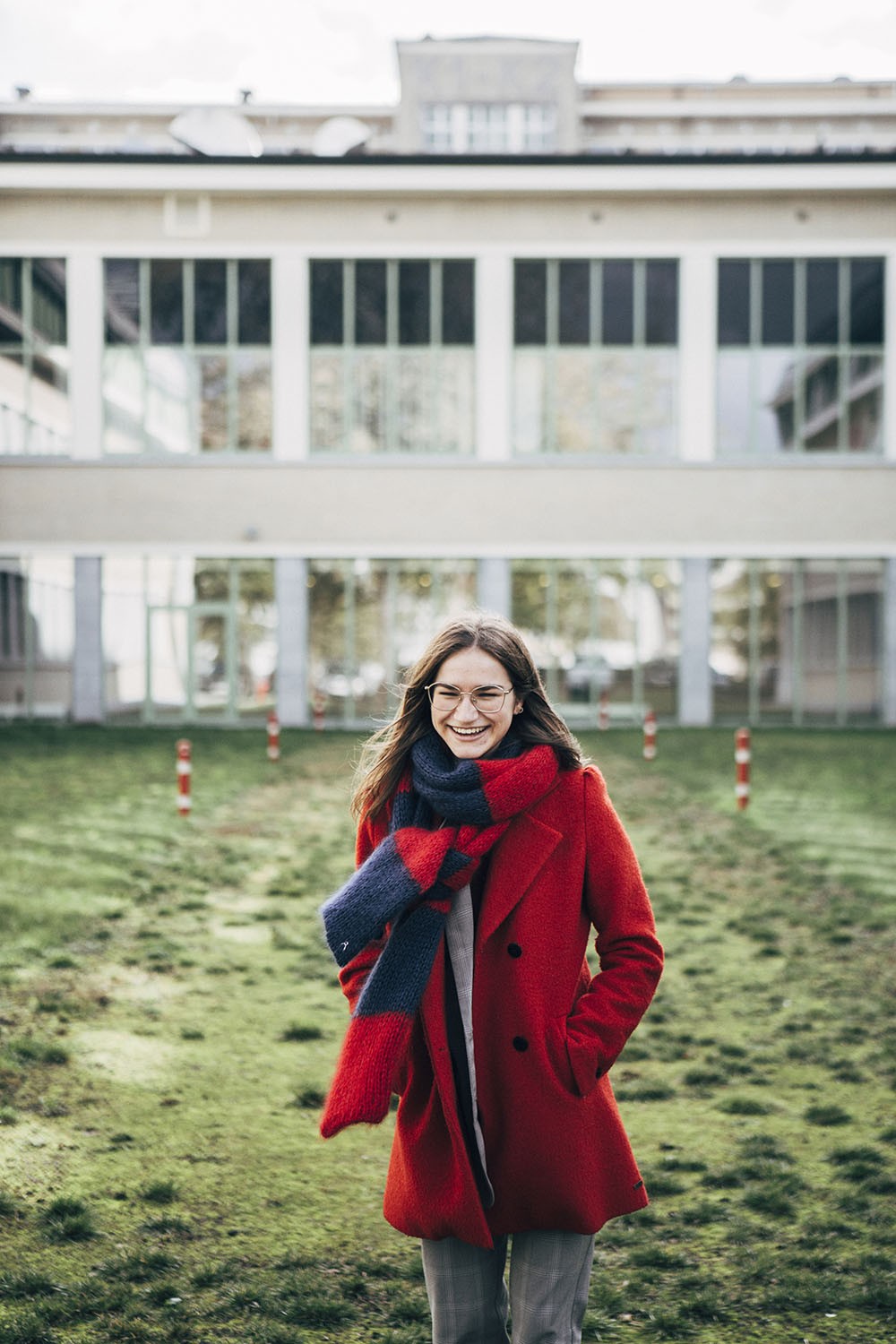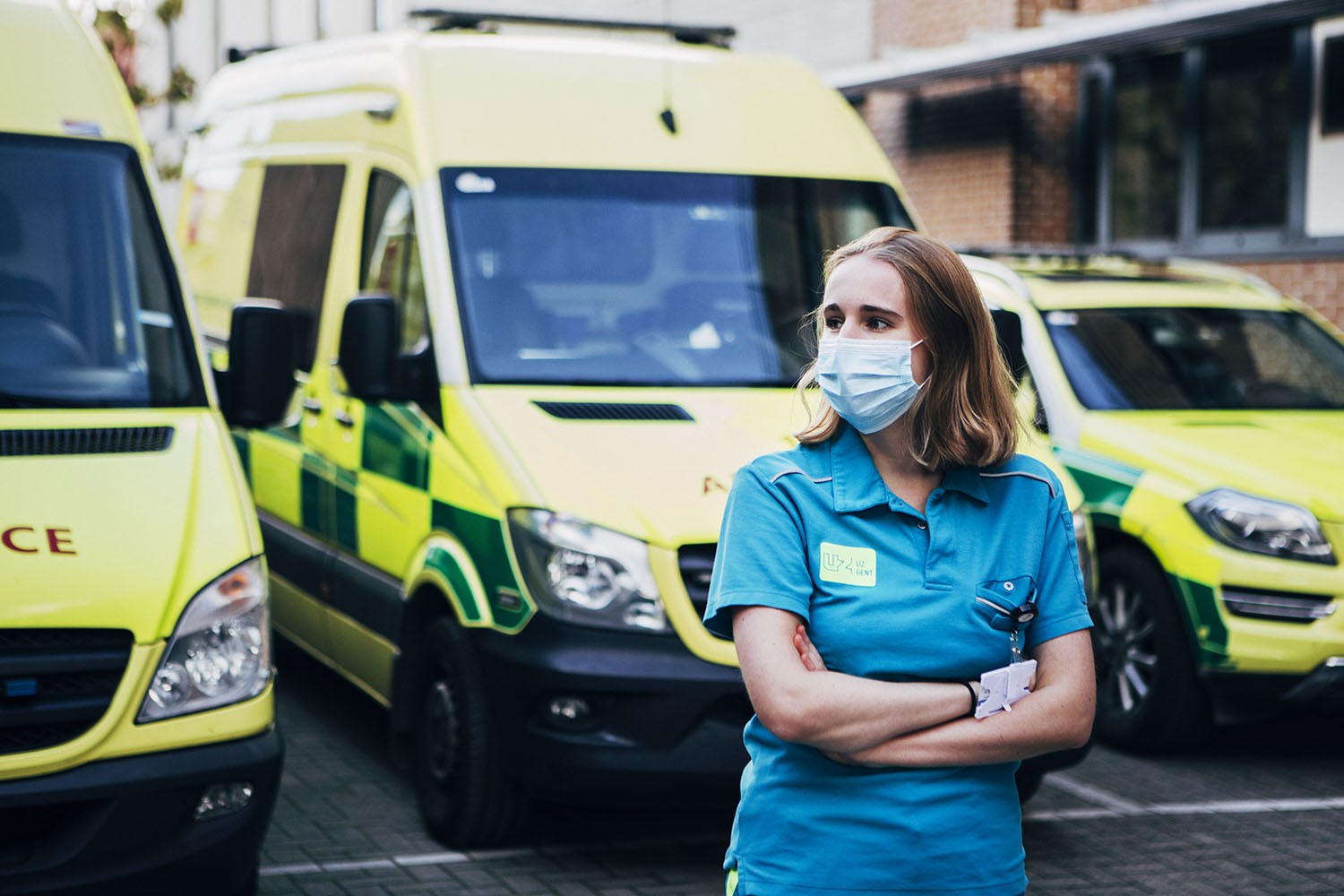The staff at UZ Gent has seen the number of patients increase significantly over recent weeks. After a call from the university hospital, many students have stepped up to help. These four students explain why.

Julie De Clercq, 1st year Masters in medicine: “It's intense, but we’re not alone”
“I help out a few days a week at the Pulmonary Diseases Department. It’s been quite stressful, especially since I started doing three night shifts. I have to monitor patients: this means keeping an eye on their saturations, heart rate and blood pressure. And of course inform nurses or a doctor if something is wrong. It’s intense, but I am certainly not alone. It is alarming to see how quickly someone’s condition can deteriorate. I knew the situation was bad, but it becomes even clearer when you are actually there. I think it is normal to help. It is our duty as medical students.”
Tim Ailliet, 2nd year Masters in medicine: “I didn't have to think long”
“I didn't have to think for very long when I saw the request. I was already looking for ways to help. I now spend a few hours a week at the General Internal Disorders department and I mainly do tests on the UZ staff. I already had some experience following my internship at UZ last academic year, but I am glad that we have been well supported, especially during the first few days. We’ve also received support from the teaching staff as well. Our professors have made it clear that it doesn’t matter whether we register as a volunteer or not, it’ll have no impact on our choice of specialization in the future. That’s good news in this competitive program. We do this because we want to help, not because we want to make contacts for later.”


Andrea Dehaene, 1st year Masters in medicine: “Interesting experience, despite the circumstances”
“I didn’t hesitate for a second to register. There are many services that could use an extra pair of hands. I help out for two days a week at the General Internal Diseases Department. I test employees and travellers who don’t (yet) show any symptoms. I am not working with patients in intensive care — I don’t have enough experience for that. It has made me think about how people become infected. It is a very interesting experience, despite the circumstances. I am happy to be able to contribute.”
Febe Magherman, 1st year Masters in medicine: “Grateful that we can help”
“Our internship during the last academic year was cancelled due to corona. When, via this call, we had the chance to gain some practical experience, I accepted. I help at the Emergency clinic, I mainly support the nurses and test employees. I am grateful that we have this opportunity and that we can help. It works out even better now that our lessons are online, as it is easier to combine study with our work at the UZ.”

Read also
Ghent University virologists combat viruses in new research facility
Every day, professor Xavier Saelens and his team work on new and improved vaccines and medicines to counter flu and corona viruses. Recently, they’ve been doing their work in a new research facility. “Our primary goal: to help those suffering from diseases.”
Done with sticks in the nose? Simple corona breath test coming soon
A corona test that’s as quick and easy as an alcohol breathalyser: it will soon be possible. Researchers at imec-MICT-UGent have been involved in creating a user-friendly device that should be ready for use by the summer.
Everyone a conspiracy theorist?
At the moment, it seems that a real boom in conspiracy theories has been unleashed. How is it possible that a completely new virus emerged from nowhere, causing so many deaths? Many believe that it has to be part of a wider conspiracy. The internet continues to be swamped with all sorts of conspiracy theories. Which raises the question: why do so many people believe in the most improbable stories, and why do we have a problem with that?
Two foreign PhD students about their experience with the lockdown in Ghent
Doctoral students Elaheh Niazi from Iran and David Gleerup from Denmark arrived in Ghent around the beginning of the second lockdown. Although they have already been here for several months, they have actually hardly seen the city, or even colleagues.



